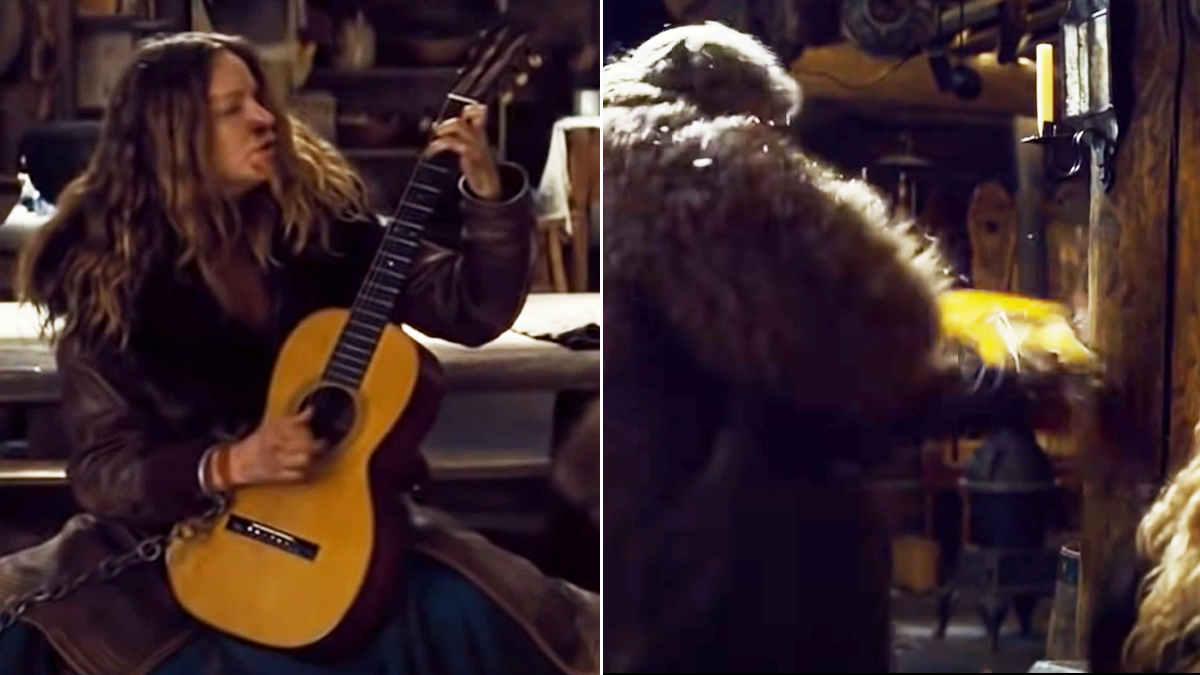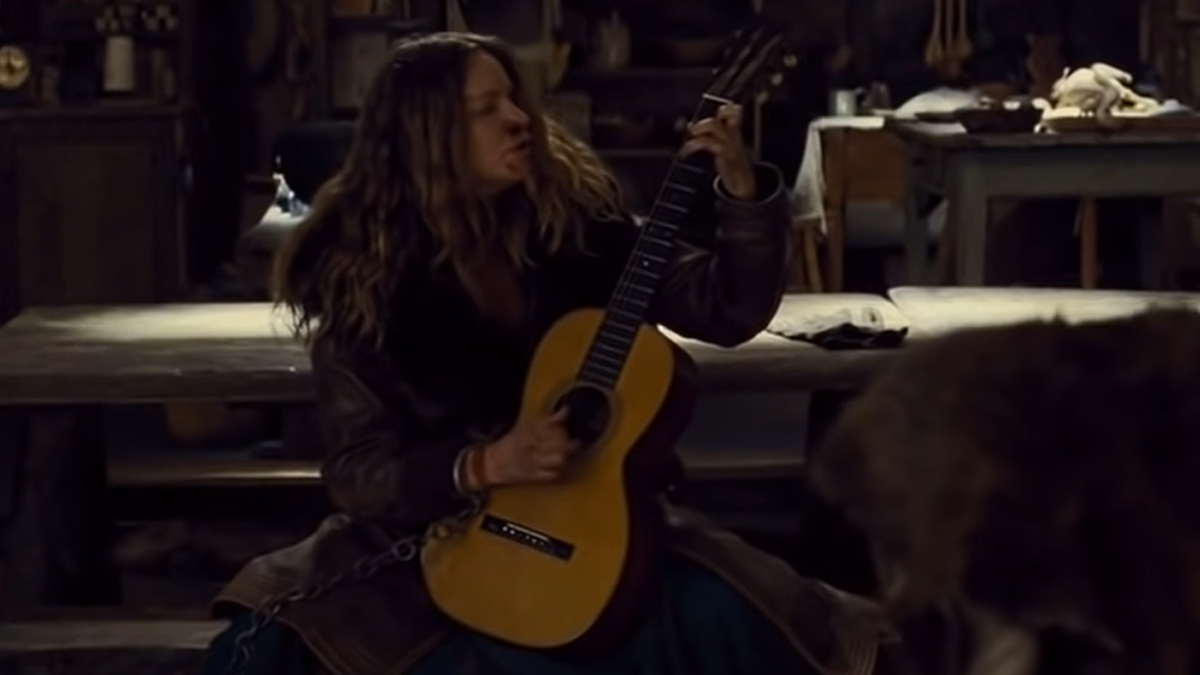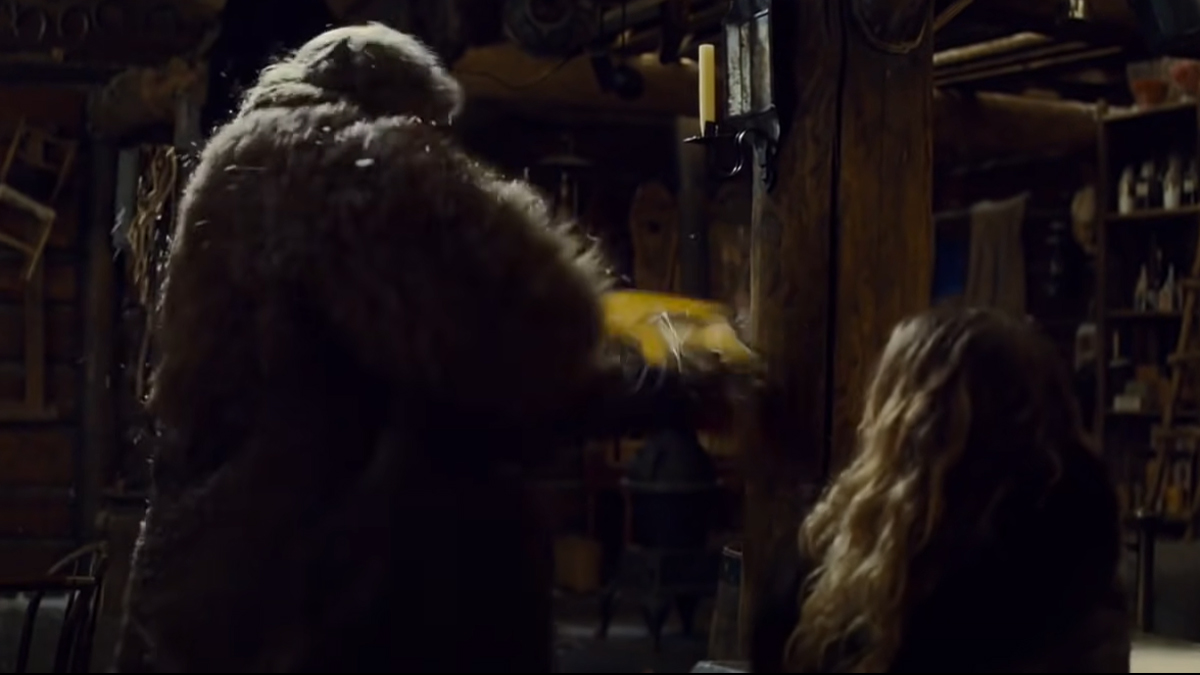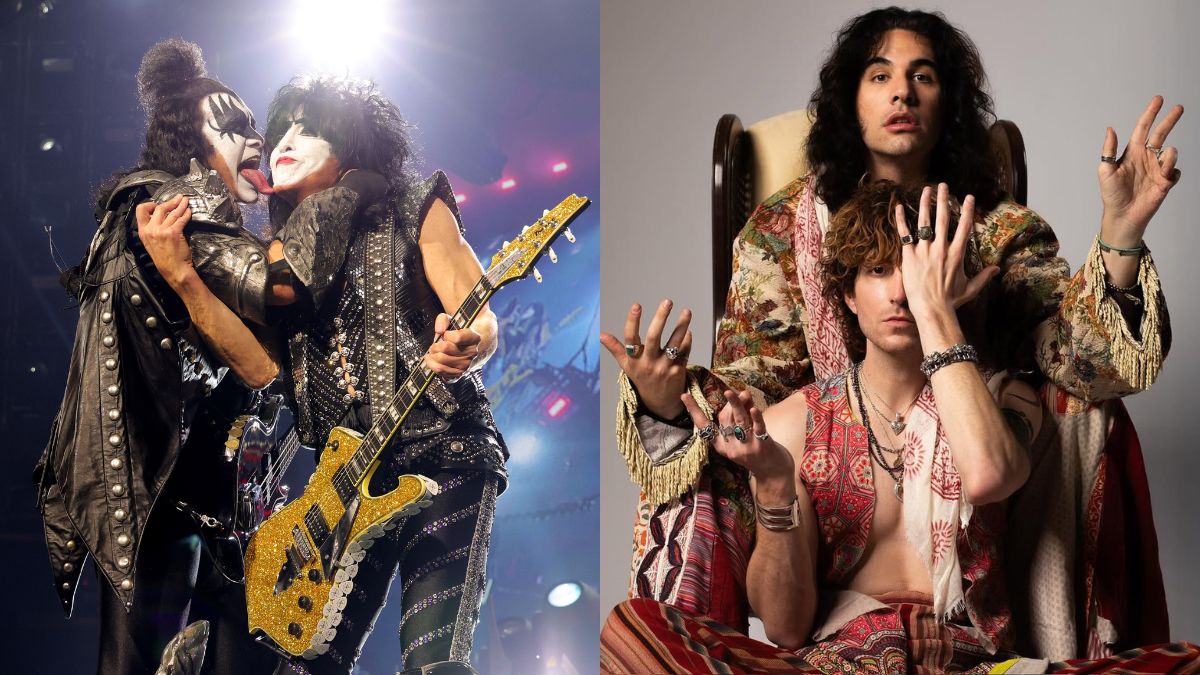That time a priceless 145-year-old Martin acoustic was smashed on the set of a Quentin Tarantino film

For guitarists, it was one of the biggest gear-related scandals in recent memory – one that not only left six-string fans wincing beyond belief, but that significantly altered the relationship between cinema and acoustic guitars forever.
At one point in Quentin Tarantino’s Oscar-winning 2015 film The Hateful Eight, a character named Daisy Domergue – played by Jennifer Jason Leigh – was noodling through the Australian folk ballad Jim Jones at Botany Bay on an acoustic guitar. Enter Kurt Russell’s character, the bounty hunter John Ruth, who snatched the instrument from her hands, declared “music time is over”, and brought the acoustic smashing into a wooden pillar.
The reaction you see from Leigh is genuine. See how she looks away from Russell, presumably to a roomful of crew members, as she processes the guitar smash? She had no idea it was coming. What she did know, though, was that the guitar she had been playing was a priceless Martin, on loan from the Martin Guitar Museum, which hailed from the 1870s.
Without even knowing it, Russell had just battered a piece of acoustic music history beyond repair.
When the two actors came to shoot the scene in question, Leigh – who learned to play and sing especially for the role – was well aware of the guitar’s heritage. According to the film’s sound mixer Mark Ulano, Leigh was to play the song on the 145-year-old acoustic, before a scene cut would allow a prop instrument to be swapped in.
“There were six doubles made,” Ulano recalled (via Insider). “The guitar was from the 1870s and was priceless. What was supposed to happen was we were supposed to go up to that point, cut, and trade guitars and smash the double.”
Russell, however, was apparently none-the-wiser to the arrangements. In fact, he revealed at the time he was under strict orders to keep acting until Tarantino yelled cut, regardless of whether he smashed the guitar or not.
All the latest guitar news, interviews, lessons, reviews, deals and more, direct to your inbox!
“On that day, I said, ‘How far do you want me to go?’ [Tarantino] said, ‘Just go until I say stop,’” Russell recalled at the time. “I said, ‘So if you don’t say stop I smash the guitar?’ He said, ‘Yep, great, just keep going.’
“I just kept going and going and going, and I took the thing and I said the line – music time’s over, or whatever it was – and I said, yeah, he wants me to smash it, so I smashed the guitar.”
“Then we cut and [Leigh] was… ‘I can’t believe that just happened.’ I was like, ‘What?’ She said, ‘You just smashed the real guitar.’”
Martin was furious. In a statement issued to Reverb by the Martin Guitar Museum, Director Dick Boak said, “We were informed that it was an accident on set. We assumed that a scaffolding or something fell on it. We understand that things happen, but at the same time we can’t take this lightly.
“All this about the guitar being smashed being written into the script and that somebody just didn’t tell the actor, this is all new information to us. We didn’t know anything about the script or Kurt Russell not being told that it was a priceless, irreplaceable artifact from the Martin Museum.”
As a result of the incident, Martin went on to state unequivocally that it would no longer loan guitars to films “under any circumstances”. So, next time you see an antique Martin on the silver screen, you can be damned sure it didn’t come from the Martin Guitar Museum.
The company was financially compensated for the guitar, but the acoustic was reportedly only insured for what the museum paid for it – most outlets put this figure at the $40,000 mark. Even so, Boak stressed the money wasn’t important.


“Upon inspection of the pieces, we realized that the guitar was beyond fixing,” Boak said. “It’s destroyed.
“We want to make sure that people know that the incident was very distressing to us. We can’t believe that it happened,” he continued. “I don’t think anything can really remedy this. We’ve been remunerated for the insurance value, but it’s not about the money. It’s about the preservation of American musical history and heritage.”
Leigh, who developed a bond with the Martin while she practiced for the film, shared Boak’s pain: “I was heartbroken about the guitar, because I was quite in love with it,” she admitted (via Billboard). “I got to actually take it home with me, and I played it every day. It had the most beautiful, warm tone.”
The Oscar-nominated actress also revealed they attempted to re-shoot the scene using a Washburn acoustic, but, according to her, “You can’t go to a Washburn after playing an 1860s Martin. It’s really rough!”
However, soon after the film was released, and audiences caught wind of The Hateful Eight’s Guitargate, spectators began to speculate over the actual fate of the instrument.
Just last year, guitar fans wondered whether the guitar had actually been salvaged, when Martin posted a picture of a similar-looking acoustic – built around a similar time as the Hateful Eight guitar – that was in the process of being restored.
Commenters were quick to ask whether this guitar was the same instrument that had been smashed over half a decade ago. “Did Quentin Tarantino borrow it?” asks one person, while another jests, “Is that the Kurt Russell signature model?”
Likewise, long-time Tarantino set worker Darren Patnode, who is credited on The Hateful Eight, recently suggested on social media the film crew had “gathered all the pieces... put it back together (mostly)... and gave it back to the company with autographs from [Tarantino] and most of the actors”. In an exchange with SiriusXM's Eric Alper, Patnode also claimed that Martin has the guitar “hanging in their office”.
Alas, to all these comments, Martin’s replies were firm: “No it’s not,” it flatly responded when someone on Facebook asked if it was restoring the Hateful Eight guitar. “It’s destroyed,” Martin wrote when another asked if the guitar had ever been salvaged.
With the conflicting reports, it’s hard to say for sure what actually happened to the guitar, and where its remains currently rest. However, with the actors’ own admissions and Martin’s firm denial of the restoration – paired with the museum’s refusal to work with Hollywood ever again – it's pretty safe to say the guitar unfortunately met its grisly end exactly as it happened on camera.

Matt is the GuitarWorld.com News Editor, and has been writing and editing for the site for five years. He has a Masters in the guitar, a degree in history, and has spent the last 19 years playing everything from blues and jazz to indie and pop. During his GW career, he’s interviewed Peter Frampton, Zakk Wylde, Tosin Abasi, Matteo Mancuso and more, and has profiled the CEOs of Guitar Center and Fender.
When he’s not combining his passion for writing and music during his day job, Matt performs with indie rock duo Esme Emerson, and has previously opened for the likes of Ed Sheeran, Keane, Japanese House and Good Neighbours.

